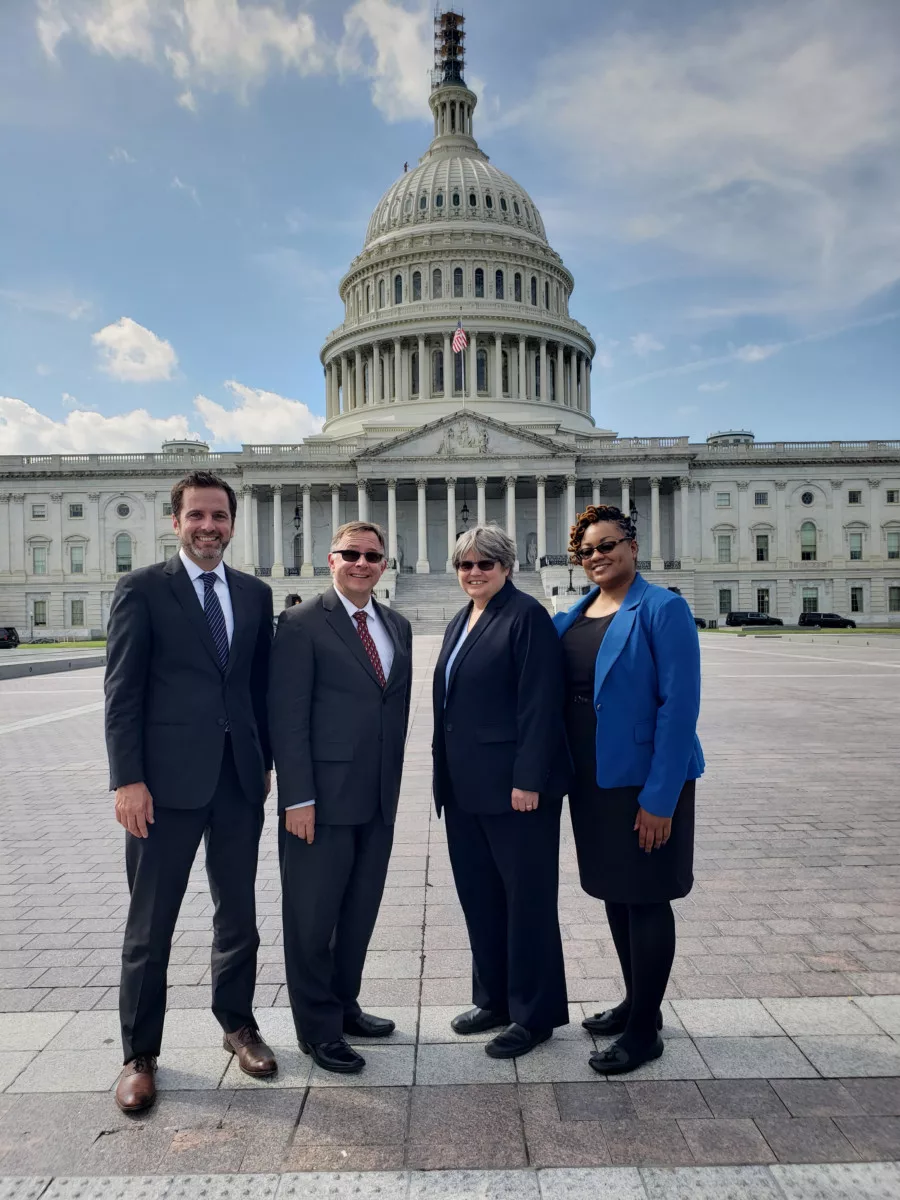By Steven Farrell, Director of Communications and Policy

While there were many newsworthy events in our nation’s capital the first week of October – including the hearings for the new Supreme Court justice – Metro Housing staff visited our legislative delegation and other public policy partners.
Over two days, executive director Chris Norris, chief financial officer Anne Rousseau, housing supports manager Regine Chrispin, and I met with 13 legislative staff members, committee staff members, and others advocates on behalf of the 25,000 low income families in greater Boston who are seeking housing stability and economic security. As I reflect on those two days in DC, I have three key points that I thought were worth sharing.
First, almost all of the individuals we met with were optimistic about the future of affordable housing funding in the next Congress. Naturally, the level of success of pro-housing legislation depends upon whether either chamber changes parties, but the trajectory of support for HUD and fair housing, for example, is looking positive.
Second, the FY19 HUD budget is further along than any other HUD budget has been for many years. Additionally, the two versions of the HUD budget – the House and Senate versions that still need to be reconciled – have several positive provisions regarding options to increase mobility and choice for families with vouchers, as well as incentives for property owners to participate in the program. Further, the funding for major programs like the Housing Choice Voucher program (Section 8) have incremental increases that maintain the existing level of services. While the Greater Boston housing market obviously demands more than simple maintenance, housing advocates across the country say we are in a better situation than we were two years ago.
Finally, and possibly most importantly, our legislators were impressed by the work of Metro Housing staff. Legislative staff was thrilled to hear about the work Metro Housing is doing through our 14 colocation sites and the work of our Housing Consumer Education Center. Additionally, we talked with several people who expressed interest in figuring out ways to use some of Metro Housing’s programs (including RAFT) as federal pilot programs in high-cost cities across the country. Stay tuned for more about that.
I will update you as Metro Housing continues to engage with legislative staffs in Washington. In particular, we will watch the budget deal struck two years ago – amid the threats of government shutdowns and slashed social service programs – that expires on September 30, 2019. The relative calm and easy recent budget process will come to a swift end if there is not another budget deal settled at this time next year. In the meantime, we will continue to work with our partners to address and prevent homelessness by providing supports and services to families and individuals in Greater Boston.